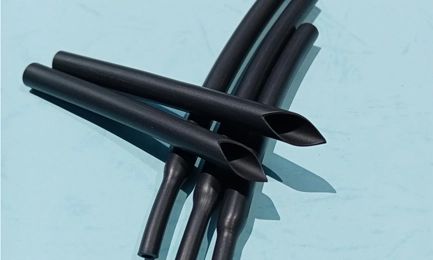Insulating conduit is a tubular material used in electrical installations to protect wires and cables, preventing electrical short circuits or leakage. It is made from materials with high electrical insulation properties,effectively isolating electrical wires and cables from other conductive bodies or environmental factors that could cause damage. Besides providing electrical insulation protection, insulating conduit also offers certain levels of waterproofing, dustproofing, and corrosion resistance, ensuring the safe operation of electrical systems.

The following are several important aspects of quality control in the production of silicone coated fiberglass sleeve and heat shrink tube sleeve and custom bulk silicone tubing:
1. Raw material inspection
Raw material quality: Strictly inspect the quality of incoming raw materials (such as PVC, PTFE, silicone rubber, etc.), including physical properties, chemical stability, etc., to ensure that the raw materials meet production requirements.
2. Production process control
Process parameter monitoring: Precise control of extrusion, vulcanization and other process parameters (such as temperature, pressure, speed, etc.) to ensure the stability of the production process and product consistency.
Online inspection: Set up inspection points on the production line to monitor the appearance, size, thickness, etc. of the insulation sleeve in real time, and timely detect and correct production deviations.
Equipment maintenance: Regularly maintain and calibrate production equipment to ensure its normal operation and production accuracy.
3. Finished product inspection
Physical performance testing: Conduct physical performance tests on the finished product, such as tensile strength, elongation, and bending performance, to ensure compliance with design requirements.
Electrical performance testing: Conduct insulation strength, voltage withstand tests, etc. to verify the electrical performance of the insulation sleeve.
Environmental adaptability testing: Conduct high and low temperature tests, humidity and heat aging tests on insulation sleeves to evaluate their performance stability under different environmental conditions.